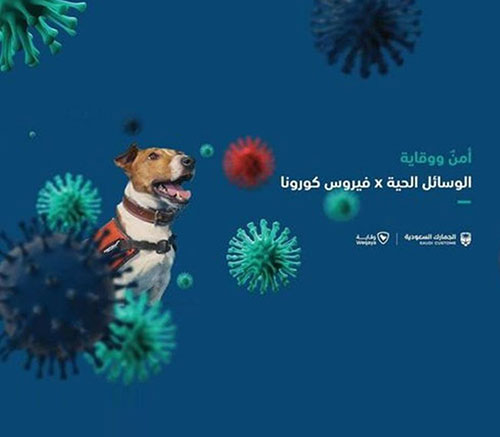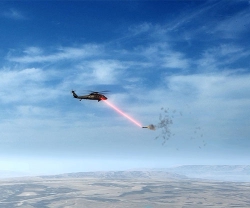Saudi Customs officials are taking the lead in identifying air travelers harboring the coronavirus disease (COVID-19) - by using specially trained sniffer dogs.
The canine virus detectors are being drafted in at airports throughout the Kingdom to help pick up the scent of infected passengers.
Following the resumption of international flights, customs staff in Saudi Arabia are to use the animals as part of their efforts to stop the spread of the deadly virus.
The customs authority, in collaboration with the Centers for Disease Control and Prevention (CDC), has been training Jack Russell terriers and other breeds to recognize the odor of COVID-19.
“The training has been 80 percent successful,” said Mohammed Al-Salloum, Director of the National Center for Living Means at Saudi Customs, adding that final preparations were being put in place for the dog teams to start work in airport terminals throughout the country.
Likewise, the United Arab Emirates (UAE) has already deployed sniffer dog squads at the Dubai International, becoming the first country to do so in the process. Samples taken from passengers are taken to another room where they are sniffed by dogs - with results being delivered in less than one minute according to the Dubai Police.
Numerous studies have shown that dogs are able to discern signs of coronavirus infection if trained to do so, being able to isolate the scent of infection from a patient’s sweat - even if they are otherwise asymptomatic.
With over 300 million scent receptors, compared to the six million found in humans, dogs are much more able to discern individual scents.
Both the UAE and Saudi Arabia were home to millions of expatriate workers before the COVID-19 pandemic hit. A Saudi Labor Market Developments report by Jadwa Investment estimated that up to 1.2 million expat workers would leave the Kingdom in 2020. Likewise, around 150,000 Indians had registered to leave the UAE on repatriation flights back to India as of June. The UAE alone is expected to shed 900,000 jobs and lose 10% of its expats due to the COVID-19-induced exodus.
As some expats return, along with international passengers, both the UAE and KSA will need to protect against an influx of new COVID-19 cases. While Saudi Arabia had over 283,000 cases as of Thursday, the UAE has over 61,600. Both countries have seen the number of daily new cases decline over time.
France too has been studying the efficacy of using sniffer dogs to detect COVID-19.
An international research team led by Dominique Grandjean, professor of the National veterinary School of Alofrt, has been studying the use of sniffer dogs in detecting COVID-19. The dogs were given both positive and negative samples from patients with and without COVID-19, and were reportedly able to distinguish between them with 100% accuracy in some cases according to a proof of concept study published in Boiorxiv. Trials conducted with the dogs had a 95% success rate of detecting the virus.
The dogs used were experienced sniffer dogs that had been trained for four days in the new method, which involved placing wool soaked in sweat samples inside metal cones - so as to make sure the dogs had no contact with the infected material.
Although precautions are taken over fears that dogs too can spread the infection, so far, transmissions have only been seen from humans to animals as well as between animals.
Chile, the UK and Germany have also conducted trials to test the efficacy of sniffer dogs in detecting coronavirus.






















